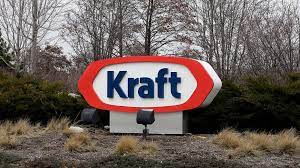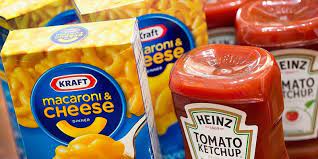Kraft Foods Agrees to Pay $62 Million for Misstatements in Financial Report

Recently, the SEC announced a settlement with Kraft Foods for $62 million and with two Kraft executives for financial reporting misstatements. Along with the corporate settlement with Kraft, the SEC announced proposed settlements with Kraft’s former COO Eduardo Pelleissone and its former Procurement Officer Klaus Hoffman for their roles in the reporting fraud.
During the period of 2015 to 2018, Kraft committed various accounting misconduct, including recognizing unearned discounts from suppliers and maintaining false and misleading supplier contracts, in an attempt to improperly reduce cost of goods sols though claimed “cost-savings.” As a result, Kraft reported inflated adjusted EBITDA based on these false cost savings. After conducting a thorough investigation and re-audit, Kraft restated its financial statements, correcting a total of $208 million in improperly recognized costs savings connected to almost 300 transactions.
Procurement employees negotiated agreements with numerous suppliers to obtain upfront cash payments and discounts in exchange for future commitments from Kraft. The supplier agreements were improperly documented in ways to prematurely and improperly recognize expense savings.

Under generally accepted accounting principles (“U.S. GAAP”), if the upfront cash and discounts are tied to future commitments then the expense savings must be recognized over the period the future obligations are satisfied. Procurement employees negotiated and maintained false and misleading supplier contracts that made it appear as if expense savings were provided in exchange for past or same-year events performed by Kraft, when, in reality, they were upfront paymentsfor a future benefit from Kraft.
Kraft entered into approximately 59 transactions that were improperly recognized as a result of false and misleading documentation negotiated and generated by the procurement division. If properly documented and accounted for, Kraft’s cost of goods would have been $50 million higher than reported.
These misleading transactions, along with numerous other misstated accounting entries, caused Kraft, in June 2019, to restate its financial statements on Form 10-K. The restatement included financial data reported for fiscal year 2015, as well as financial statements in Forms 10-Q and 10-K for fiscal years 2016 and 2017, and the first three quarters of fiscal year 2018. In total, Kraft corrected 295 transactions, and its adjusted EBITDA during the relevant period, totaling $208 million in cost savings.

Kraft’s internal accounting controls as applied to its procurement division were deficient. Finance and gatekeeping personnel repeatedly ignored indications that expenses were being improperly accounted for under applicable accounting standards. Pelleissone was presented with numerous warning signs that expenses were being managed through manipulated agreements with Kraft’s suppliers. Instead, Pelleissone pressured the procurement division to deliver unrealistic savings results. Pelleissone also participated on Kraft’s disclosure committee and failed to exercise proper oversight of his obligations on the committee.
Hofman, the chief procurement officer, approved several supplier contracts used to further the scheme despite warning signs that employees were circumventing internal controls and certified the accuracy of the procurement division’s financial statements in the midst of the illegal scheme.
Pelleissone agreed to pay a penalty of approximately $314,211. Hofman agreed to pay a penalty of $100,000.















